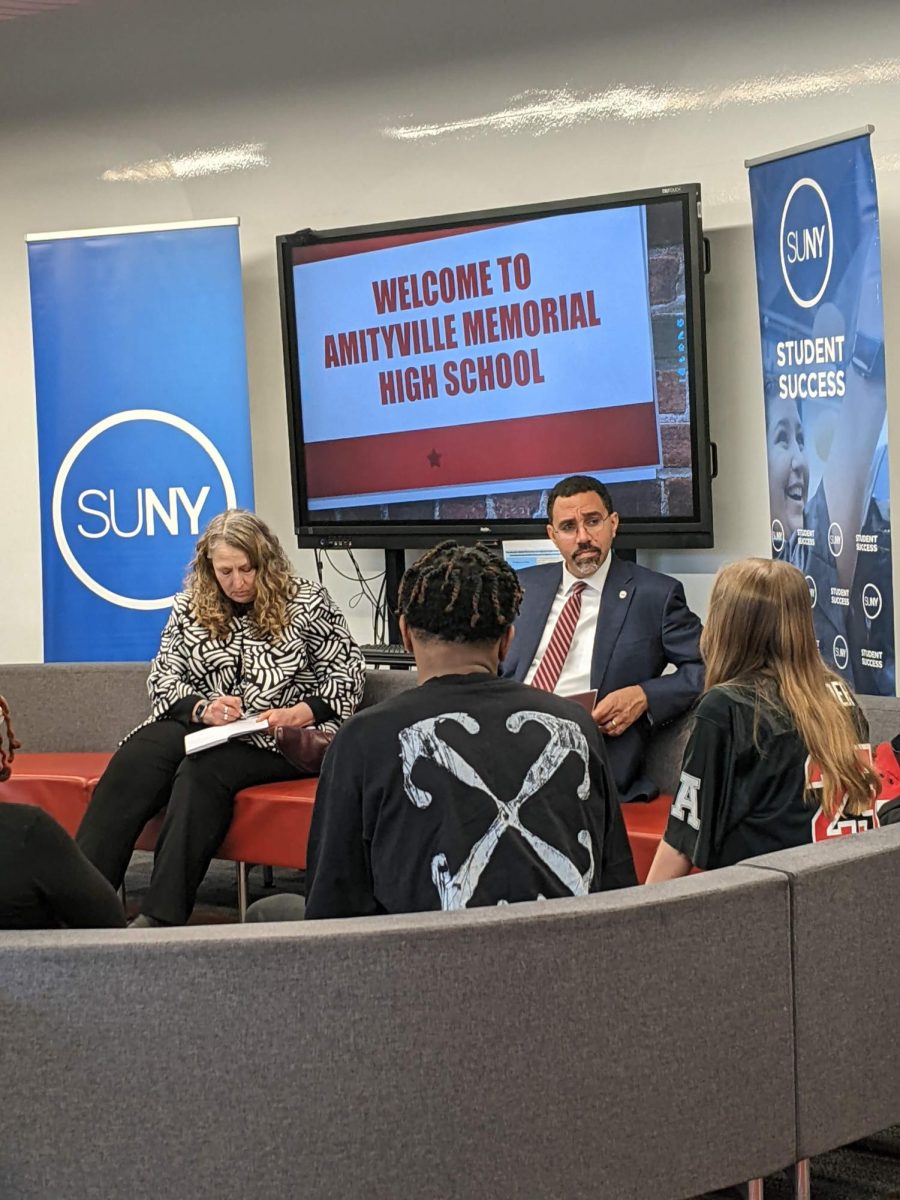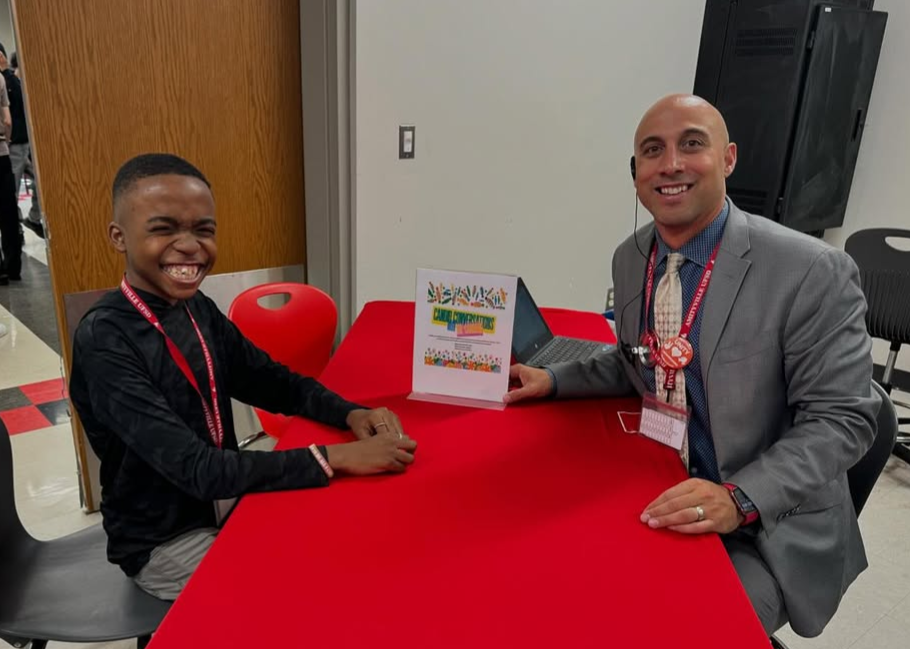When we consider the topic of immigration, it’s easy to focus solely on the act of moving to a new country and finding employment. However, the experience encompasses much more. Mental health issues extend beyond mere depression; they can arise from factors such as family separation and adjusting to a new education system. Imagine being separated from your family at a young age and placed in foster care, where you may face mistreatment.
Personal background: Arriving here at the age of 12 was never part of the plan. I intended to come to college only. I had visited here on vacation before, but I never imagined that my last trip would be the final time I saw my home country. Navigating school without any knowledge of English or the local culture was incredibly challenging. I remember crying every night because others would tease me about my accent, my clothing, or even my appearance at times. However, I never gave up. Now, I’ve made significant progress; I don’t cry about it as often, and while my accent remains, it’s less pronounced. Unfortunately, with the new policies from this presidential administration, my family and I feel a constant sense of fear. Going out has become intimidating because we’re uncertain about what might happen. This situation is taking a toll on our mental well-being, and I know many others are similarly affected in various ways.
Immigration and mental health: How do they connect?
Do we believe that immigration shapes our mental health for the better or worse? Experts report: “Research on the health and mental health of immigrant groups has established that first generation immigrants (those born in one country, the “home” country, that migrated to the U.S., here denominated as the “host” country) are healthier, in terms of most physical and mental health outcomes than their U.S. born counterparts” It may seem surprising, but studies have shown that being away from home, particularly in foster care, can profoundly influence your perceptions of family. The distance from the familiar comforts of home can reshape your understanding of what family means and alter your priorities regarding relationships. This experience can leave lasting impressions, coloring the way you view connections with others and the importance you assign to them in your life. Another online source asks: Why do migrants risk it all? They share that each year, thousands of people leave their homes in Latin America, the Caribbean, and other regions in an effort to secure futures that have become practically unattainable in their countries of origin. Economic dispossession, lack of access to education and employment, violence, and other structural and personal factors have motivated people from all over the world, but mostly from Central American countries, to seek a new life in the United States or other countries within the region.”
After exploring this topic further, I discovered compelling sources that shed light on a critical truth: many individuals moved here, escaping the profound impact of sexual abuse and a glaring lack of support. Their journeys represent not just physical relocations but courageous moves for safety and healing, as they seek to rebuild their lives in a more supportive environment.
Just how challenging is the journey ahead?
People immigrating for work or school are often granted temporary entry rather than permanent residency. Immigration for family generally means the immigrant has a relative who is already in the US as a citizen, green card holder, or temporary visa holder with whom they want to be reunited. Those who immigrate for safety are refugees or asylum-seekers. And finally, up to 50,000 immigrants obtain green cards annually through the Diversity Immigrant Visa Program lottery that grants entry to individuals from countries with low rates of immigration to the US.
How can we lend a helping hand to those navigating this journey?
We can make a profound difference by standing by the side of someone who is navigating their struggles. Mental health can feel like an overwhelming storm, particularly during the tumultuous time of moving. The weight of change can be heavy, and just knowing that someone is there to listen and support can provide a glimmer of hope.
I recently asked AMHS assistant principal, Ms. Rodriguez, a series of questions on this topic.
DP: What do you think are the main mental health challenges that immigrants face?
Ms. Rodriguez: Being away from home can be challenging, especially when separated from family for an extended period. Many immigrants endure traumatic experiences upon their arrival. Often, they lack the necessary support due to language barriers and uncertainty about their new environment. Additionally, mental health is not always regarded as a priority in various cultures.
DP: What can schools or workplaces do to support immigrants’ mental health?
Ms. Rodriguez: It’s essential for schools and workplaces to reach out to families and let them know about the valuable resources available to them. This support is even more impactful when shared in their preferred language. By doing so, we can create a more inclusive environment where everyone has the tools they need to thrive!
DP: How do you think communities can help immigrants feel more supported?
Ms. Rodriguez: Understanding the importance of safe environments and knowing one’s constitutional rights is essential. This includes recognizing local support organizations and familiarizing oneself with rights like free speech, assembly, and privacy. Such knowledge empowers individuals to advocate for themselves and seek help, ensuring they are aware of their legal protections..
DP: Do you believe current immigration policies are fair? Why or why not?
Ms. Rodriguez: I believe that many current immigration policies are not entirely fair because they often fail to take into account the complexity of individual circumstances. I find current policies can be inconsistent across cases, leaving families separated and individuals in prolonged uncertainty. I think that while regulations are important, the system should also be humane.
DP: What changes would you like to see in immigration policies?
Ms. Rodriguez: I would like to see policies that prioritize family unity, create clearer and faster pathways to legal residency, and citizenship. I also think that the rights of immigrants who contribute significantly to the economy should be protected.
DP: How do you think immigration affects the economy and society?
Ms. Rodriguez: Migration has a positive effect on both the economy and society. Immigrants fill critical labor gaps, start businesses, pay taxes, and bring innovation and cultural diversity. They strengthen communities by sharing traditions, perspectives, and skills that enrich our society.
DP: What do you believe are the main reasons people immigrate here?
Ms. Rodriguez: People migrate for a variety of reasons, including economic, safety, education, and family reunification.
DP: Do you think immigration-related stress has impacted your emotional or psychological state? How?
Ms. Rodriguez:I don’t think that it has impacted my emotional and psychological state, however, it breaks my heart to watch the news and see all the injustices that are happening currently.
DP: How do you believe immigration can affect a person’s emotional well-being?
Ms. Rodriguez: Immigration can affect a person’s emotional well-being. The process of adjusting to a new environment and leaving family and friends behind can create a heavy emotional burden. In addition, learning a new language, adapting to a different culture, and experiencing a lack of belonging can be overwhelming. Some individuals also face discrimination, which can intensify feelings of isolation or anxiety. Altogether, these factors can have a significant impact on a person’s mental health.
DP: What can society do to reduce the mental health stigma among immigrant communities?
Ms. Rodriguez: Society can reduce stigma by promoting open dialogue about mental health, providing culturally and linguistically appropriate services, and normalizing therapy and counseling as forms of self-care. Schools, community centers, and faith-based organizations can play a major role by creating safe spaces where immigrants feel understood and supported.
I asked AMHS English teacher, Ms. Keenan, the same set of questions.
DP: Do you believe current immigration policies are fair? Why or why not?
Ms. Keenan: I’m not knowledgeable enough to comment on specific policies, but I would assume there needs to be a more efficient way to handle the immigration process at the moment.
DP: What changes would you like to see in immigration policies?
Ms. Keenan: I would like to see more pathways to citizenship for people, either through civil service or military service.
DP: How do you think immigration affects the economy and society?
Ms. Keenan: I think we are a nation that relies on our immigrant population for many things, and far too many people don’t even realize the vital contributions people from other nations make to our everyday lives.
DP: What do you believe are the main reasons people immigrate here?
Ms. Keenan: I think people immigrate to this country for several reasons– among them, a safer environment and more opportunities for themselves, their families, and their futures.
DP: Do you think immigration-related stress has impacted your emotional or psychological state? How?
Ms. Keenan: I definitely worry about how the current climate in this country affects our students from other places. I worry about their ability to find stability and safety.
DP: How do you believe immigration can affect a person’s emotional well-being?
Ms. Keenan: There are an unbelievable number of obstacles people must face when leaving the only home they’ve known– leaving their family and friends and language and culture behind… so many unknowns, all of which factor into their overall emotional well-being.
DP: What can society do to reduce the mental health stigma among immigrant communities?
Ms. Keenan: I think if more people could educate themselves on the history and evolution of immigration (and even the nuances between terms such as immigrants and refugees), then perhaps they might be less likely to view these people in a negative light.
I also asked four AMHS students for their opinions on Immigration. They have requested to remain anonymous.
DP: Do you believe current immigration policies are fair? Why or why not?
Student 1: I think it might depend on the different policies put into place, because some policies are harsher than others in our society.
Student 2: I do not believe the current policies are fair because although they help to reduce the problem of “illegal immigrants” who come here for the wrong reasons, they also reduce the number of immigrants coming for good reasons. Not every “illegal” immigrant comes to commit illegal deeds; wanting a better life isn’t illegal.
Student 3: No, I don’t think that they are fair because immigrants make up most of the United States ‘ population.
Student 4: No, they are not fair. Why are people on stolen land mad about people on their stolen land? It belongs to nobody.
DP: What changes would you like to see in immigration policies?
Student 1: Helping families reunite faster, and helping undocumented immigrants get documented quickly, so they don’t get into trouble if they are caught undocumented.
Student 2: I don’t know the specifics for policies, but obviously, some policies are plain unfair; things like ICE being able to “racial profile” are completely unfair.
Student 3: I would like to see immigrants treated fairly and with equal respect.
Student 4: I would like to see Illegal Immigration looked into instead of just arresting any immigrant.
DP: How do you think immigration affects the economy and society?
Student 1: I think immigration increases our economy when hard-working people come into our country and immediately start working in our society.
Student 2: I think immigrants are the main foundation of the economy, especially when our society is capitalist. Immigrants provide significant economic abundance for the US economy, considering the labor they put in and the innovations.
Student 3: Immigrants bring in money with their strong work ethic, and they are willing to put in the work in their jobs.
Student 4: It affects the economy and society negatively and ruins any diversity.
DP: What do you believe are the main reasons people immigrate here?
Student 1: Wanting a better life/ future for themselves.
Student 2: I think the main reasons that people immigrate to the US are because of the image they are given of independence and freedom, as well as seeking refuge or a better life in that image depicted by the US to other countries.
Student 3: People come to the US for better lives and opportunities.
Student 4: People immigrate here because of push or pull factors, and America likes to promote “The American Dream,” although it’s quite the opposite.
DP: Do you think immigration-related stress has impacted your emotional or psychological state? How?
Student 1: In a way, it does pain me to see how people are being treated so harshly in our society due to being undocumented, but I also have never gone through it, or know what it feels like.
Student 2: The stress related to being immigrants has negatively impacted my family and me.
Student 3: Yes, immigrant-related stress has affected me negatively because my family and I were feeling stressed about that happening to 1 of us.
Student 4: It hasn’t impacted me in any way, shape, or form. I’ve seen it impact friends and family, not me.
DP: How do you believe immigration can affect a person’s emotional well-being?
Student 1:They could lose family, and also would have to adjust to a new culture and norms in a new area.
Student 2: Yes, I do believe that immigration can affect a person’s mental health. Immigration itself can be liberating while also being extremely scary when going to a new place. And considering all the policies being put into immigration now, it just increases the fear factor.
Student 3: Immigrants can become friends and family members and when they are threatened to be deported then that can make those families and friends to be stressed or even becoming depressed.
Student 4: It can negatively impact a person’s well-being because they might be separated from family.
DP: What can society do to reduce the mental health stigma among immigrant communities?
Student 1: Create communities that have support groups and advocate for mental health, and create stable environments for immigrants
Student 2: Society can protest and advocate for immigrant communities while also advocating for mental health in general. I feel like if we put as much work as we do into a phone ban, then we could certainly do more to advocate for immigrants.
Student 3: Society can stop making stereotypes about immigrants because they are the backbone of the United States, by doing jobs others don’t want to do, or even jobs that others can’t do.
Student 4: Society can do a lot of things, but it doesn’t mean it will help.







